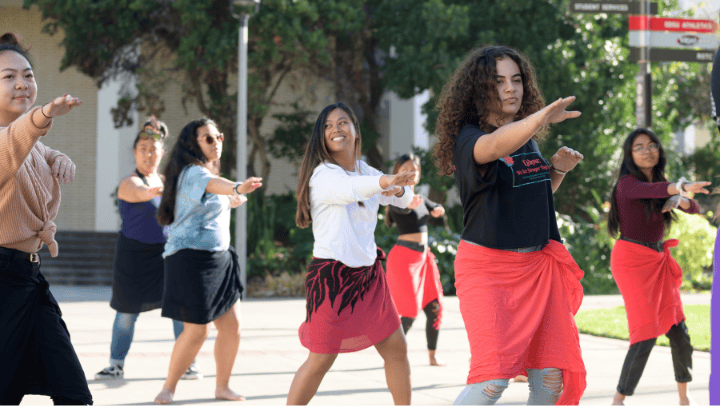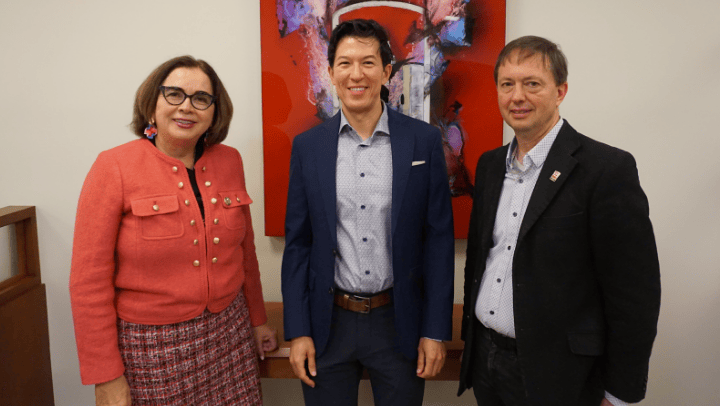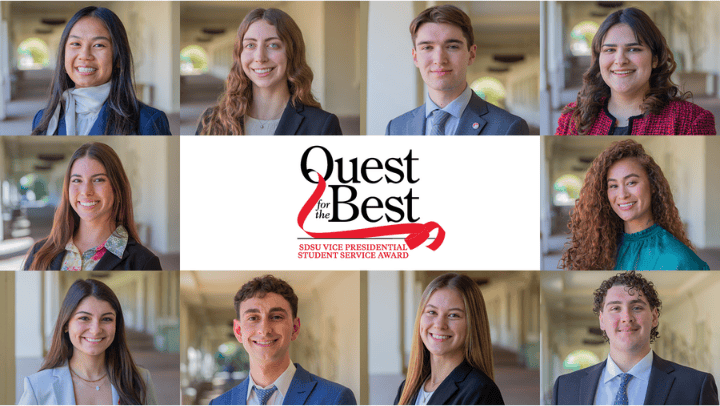Mellon Foundation grant bolsters groundbreaking Asian American Studies program
The program provides community-focused curriculum at San Diego State University

San Diego State University has launched a new program that aims to provide students with a deep, interdisciplinary exploration of Asian American and Native American Pacific Islander histories, cultures, and contemporary issues.
The Asian American Studies (AAS) Department was established in March 2025 within the College of Arts and Letters. The department emphasizes storytelling, oral histories, and community engagement.
For Alvin Henry, professor and AAS director, it is a dream come true after advocating for the program’s approval since his arrival at SDSU in 2022.
An $850,000 grant from the Mellon Foundation will provide additional resources to create an innovative and community-focused curriculum.
“Mellon has recognized the importance of Asian American Studies as a discipline and how it will serve the needs of many students on campus,” Henry said. “Even those who don’t major or minor in it can take our courses and gain a consciousness about Asian American and Pacific Islander histories, our discipline’s methodologies, and Asian Americans’ ongoing contributions to America.”
SDSU was designated an Asian American and Native American Pacific Islander-Serving Institution (AANAPISI) by the U.S. Department of Education in 2021.
“This department will give SDSU students the opportunity to explore the rich history and the important contributions of this community to our region and our nation,” said SDSU President Adela de la Torre. “There are compelling stories to be found everywhere, and in telling them we help to better understand how they impact and influence the fabric of American society.”
 Open the image full screen.
Open the image full screen.
“One of our core courses will involve students collecting oral histories from local AANAPI communities,” Henry said. “This work allows students to engage with elders, uncover hidden narratives, and deepen their understanding of immigration, racial identity and cultural preservation.”
The department will partner with SDSU’s APIDA Center, Office of AANAPISI Affairs, Charles Wei-hsun Fu Center for Asian and Pacific Studies, and the School of Theatre, Television, and Film.
Henry envisions coursework that extends beyond the classroom, immersing students in fieldwork, oral history projects and performance-based storytelling. In several courses, students will create published public humanities work such as podcasts, edited and transcribed oral history documentaries, hybrid food narratives, literary works, stage-ready dramas and traditional research papers.
A course on documentary filmmaking will give students practical experience by collaborating with such organizations as the Pacific Arts Movement and the San Diego Asian Film Festival.
Building professional internships for students with community-partners and businesses creates student success. Community collaboration is central to the department’s vision. Unlike programs built solely from the perspective of the leading faculty, Henry emphasizes local AANAPI communities will play a crucial role in shaping the curriculum and its relevance to modern problems and careers.
With the Mellon grant, the department plans to develop a minor in Filipino American Studies, recognizing a large community in San Diego. Henry hopes that courses, including Filipino American oral history, will empower students to explore their own identities and connect with their cultural heritage to foster intellectual growth.
“The Mellon grant enables us to go beyond what a typical class project can achieve,” he said. “We can build long-term partnerships with the community to ensure their voices are heard and their histories preserved.”
Henry said he felt a mixture of excitement and responsibility upon hearing of the Mellon grant.
“This is an opportunity to build something truly meaningful,” he said. “The Mellon Foundation has given us the ability to dream big — and now, we have the chance to turn those dreams into reality.”



